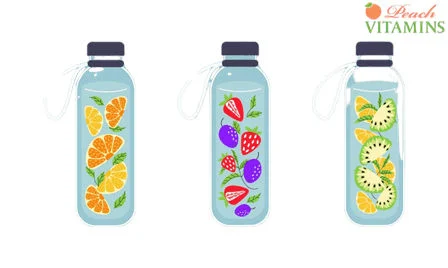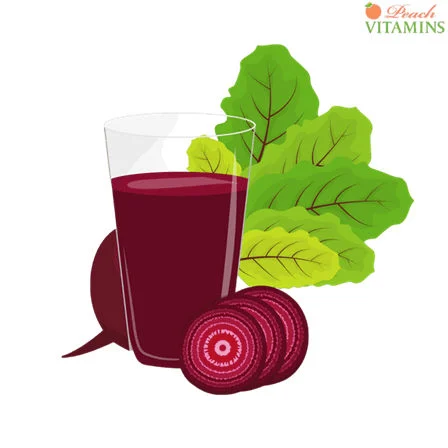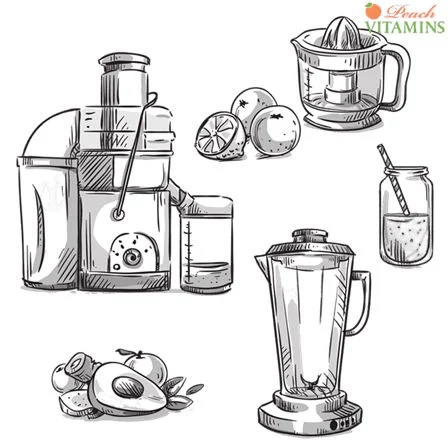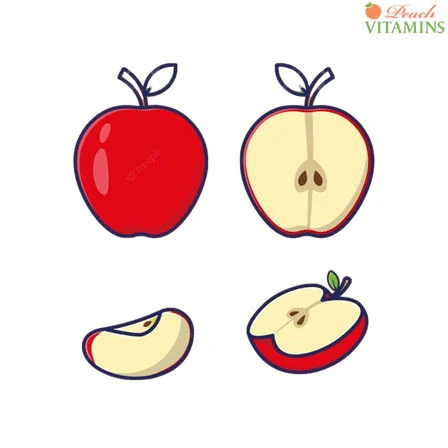Is Juicing Good for Your Digestive System?
Did you know that your gut health affects everything else in your body? It does! And it’s not just your stomach that needs to be healthy, either. Your brain, liver, kidneys, skin, muscles, bones, joints, heart, lungs, blood vessels, hormones, immune system, and moods depending on how well your digestive tract functions.
If you want to live longer, healthier, happier, and more robust, you should consider juicing as part of your daily diet. Many doctors recommend that everyone do a juice cleanse once every year, which will help you eliminate harmful bacteria, parasites, viruses, and toxic waste from your body.
If you’ve never done a juice cleanse before, read this article first. Then, check out my list of the top 10 juice cleanse benefits. After that, you’ll understand why you should try a juice cleanse yourself.
I will tell you exactly how to make a juice cleanse work for you, and I’ll also share with you the most effective way to consume juices. Finally, I’ll explain how to prepare your home for a liquid cleanse.

Things to Think About Before Starting a Juice Cleanse for Gut Health
If you’re thinking about starting a juice cleanse, there are some things you should consider before beginning.
- First, you need to be aware of the risks associated with juicing.
- Second, you need to understand the benefits of juicing.
- Third, you must decide whether to drink only fresh fruit and vegetables or include supplements.
- Finally, it would be best to determine when to stop drinking juice.
The risks associated with juicing include dehydration, electrolyte imbalances, vitamin deficiencies, and liver damage. These problems can occur because of overdrinking, insufficient water, or eating too many fruits and vegetables.
Benefits of juicing include weight loss, improved digestion, better energy, and increased immunity. Juicing helps you lose weight because it forces you to eat fewer calories than you usually consume. It also reduces bloating, gas, constipation, and indigestion.
There are two types of juicers: centrifugal and masticating. Centrifugal juicers extract juice from produce through force, and Masticating juicers grind produce into small pieces, allowing the fluid to flow easily. Both types work well, although centrifugal juicers tend to be faster and cheaper.
Next, you must decide if you want to drink only freshly pressed juice or add supplements to your juice cleanse. Newly squeezed juice contains vitamins and minerals that aren’t available in store-bought juice. However, adding accessories may help you achieve your goals.
Finally, you must figure out when to stop drinking juice during your cleanse. Some experts recommend stopping after four days, while others suggest continuing until you’ve lost 10 pounds. Your body needs time to adjust to the change in nutrition.
Juice Cleanse For Gut Health
If you’re looking for a healthy way to lose weight, consider juicing instead. Juicing is a great way to consume plenty of vegetables and fruit, which helps keep you full longer and satisfied. Juicing is a quick and simple way to detoxify your body, helping you feel better overall.
Green juices contain chlorophyll, which boosts energy and reduces fatigue, and they also contain antioxidants, which protect cells from damage. Vegetable juices include carrots, celery, cucumbers, kale, spinach, parsley, broccoli, and peppers. Fruit juices include apples, pears, oranges, grapefruit, lemons, limes, kiwis, and berries.
When selecting a juice, pick one that contains at least two servings of produce per 8 ounces. This ensures you’re getting enough nutrients to support your health goals. And remember, drinking too much water can dilute the nutritional value of your juice.
Another option is to mix your juice with sparkling mineral water. Mineral waters are naturally flavored and refreshing, making them perfect for mixing with your juice. Be careful not to overdo it, though, since too much carbonation can lead to stomach upset.

Fresher Is Always Better
The fresher the food, the better. This applies not only to produce but also to juices. Fresh juices are healthier than store-bought juices because they’re made fresh daily. They contain fewer preservatives, additives, and sugars. And they taste better too!
If you’ve ever tried juicing, you know it takes practice to master making delicious, healthy juices. But once you learn to make them, you’ll never go back to drinking store-bought fluids again.
When ready to try juicing, use organic fruits and vegetables whenever possible. Organic foods are grown without pesticides, herbicides, fungicides, or chemical fertilizers. They’re also free of genetically modified organisms (GMOs).
Organic fruits and veggies are often available at farmers’ markets, natural grocery stores, co-ops, and online.
Once you’ve found the right ingredients, here’s how to make a great juice:
- Wash the fruit and vegetable thoroughly. Remove stems, seeds, and peels. Cut or chop the fruit and veggie into small pieces. Don’t cut anything more significant than 1 inch.
- Put the fruit and veggie in a blender or food processor. Add water until the mixture reaches the consistency you prefer.
- Pour the juice through a strainer to strain the pulp and fiber. Discard the solids.
- Enjoy your freshly squeezed juice—store leftovers in the refrigerator.
- Make another batch of juice within 24 hours.
- Repeat steps 2 through 5 every day for several weeks. Your body will adjust to the change in diet, and you’ll feel healthier and happier.
- Once you’ve mastered juicing, add herbs and spices to enhance flavor. Add cinnamon, ginger, cayenne pepper, turmeric, or lemon zest.
What Foods Should I Avoid After Cleansing?
After cleansing, many people feel great and lose weight quickly. However, some people experience bloating, gas, constipation, diarrhea, headaches, fatigue, and mood swings. These symptoms may be due to eating foods that aren’t healthy for them.
The most common culprits include dairy, gluten, soy, corn, eggs, nuts, seeds, beans, and caffeine. So what should you eat after cleansing? Here are some suggestions:
- Dairy – avoid milk, cheese, yogurt, ice cream, butter, sour cream, cottage cheese, kefir, and whey protein powder.
- Gluten – avoid bread, pasta, pizza crust, crackers, cookies, cake, muffins, and beer.
- Avoid tofu, edamame, tempeh, miso soup, soy sauce, soybean oil, and soybeans.
- Corn – avoid popcorn, tortillas, chips, salsa, taco shells, corn syrup, and canned corn.
- Caffeine – avoid coffee, tea, energy drinks, chocolate, cola, and soda.
If you’re experiencing these symptoms, try eliminating certain foods from your diet for two weeks. Then reintroduce each food individually and monitor your health. If you notice any improvement, continue eliminating the offending foods until you no longer experience symptoms.

Is Cranberry Juice A Good Detox Diet?
Advocates of juice cleanses recommend drinking cranberry juice daily because it contains powerful antioxidants that help fight bacteria and viruses. But did you know that cranberries also contain essential vitamins and minerals that support gut health?
The benefits of cranberry juice include supporting healthy digestion, fighting infection, and reducing inflammation. Plus, cranberries are loaded with fiber and phytonutrients (plant compounds) that help heart health. So, yes, cranberry juice is an excellent detox drink!
But there’s another reason to drink cranberry juice every day. Cranberries are rich in vitamin C, potassium, and manganese, three critical nutrients that support bone health. And when you’re trying to lose weight, eating foods packed with these nutrients helps keep hunger at bay.
Does Intermittent Fasting Work With a Juice Cleanse?
While this diet may be effective at removing toxins, it doesn’t work well when combined with intermittent fasting.
Fasting is not recommended during a juice cleanse because it causes the body to starve. This means that instead of burning fat, the body uses stored energy reserves (such as glycogen) to fuel metabolism. Glycogen stores are depleted after only two days of fasting, so the body must burn muscle tissue to meet its metabolic needs. Muscle tissue contains protein, which is essential for building lean mass.
Instead of fasting, consume healthy foods throughout the day. Eat small meals every three hours, and avoid snacking between meals. Avoid sugary drinks and alcohol. Drink green tea, coconut water, and fresh juices. These beverages contain nutrients that help flush out harmful toxins from the body.

Taking Care of Our Gut Will Help Us in Many Ways, Including Mental Health
We know that our gut health improves when we eat foods rich in fiber, prebiotics (foods that feed probiotic bacteria), and probiotics (friendly bacteria). But did you know there are many ways to improve your gut health besides healthy foods?
Diaphragmatic breathing is one of the easiest ways to improve your gut flora. This simple technique helps calm your mind and relax your body.
Another great way to improve your gut health is through sleep. Getting enough quality sleep each night is essential to maintaining optimal gut health.
Finally, regular exercise is another way to improve your gut flora and maintain optimal gut health. Exercise increases blood flow to your digestive tract, helping to flush out toxins and keep your gut clean.
All three of these methods work together to create a healthier gut environment. And since taking care of your gut will benefit your entire life, including your mental health, it’s worth investing some time today to take better care of yourself.
Tacking Health Issues with Juice Cleansing and a Balanced Diet
If you want to lose weight, clean out your gut, or improve overall health by regulating portion sizes, you may be interested in trying a juice cleansing diet. This involves drinking only juices made from fresh fruits and vegetables.
The solution? Try adding fiber to your juice cleanses. Fiber helps keep things moving through your digestive system, making it easier to digest food and absorb nutrients.
Fiber comes in two forms: soluble and insoluble. Soluble fiber dissolves in water and swells up, helping move the waste matter along your digestive tract. Insoluble fiber doesn’t dissolve in water but instead passes through your body intact. Both types of fiber help reduce bloating and constipation.
To add fiber to your juice cleansings, use celery stalks. Celery contains a lot of fiber and adds flavor to your drinks. To avoid getting too much fiber, drink small amounts at a time and mix them with ice cubes.
When you’re ready to stop your juice cleansings, slowly reintroduce solid foods into your diet. Start with steamed veggies and salads, then gradually work your way up to whole grains, meats, and dairy.

Dinner Drinks During a Juice Cleanse
The health benefits of having raw fruits for dinner can’t be overstated. They provide abundant vitamins, minerals, antioxidants, enzymes, and phytochemicals.
Handling weight maintenance during your juice diet requires careful planning. If you have trouble losing weight, consider consulting a nutritionist specializing in juicing.
You’ll also want to ensure you don’t get too little protein while following this diet. Protein is vital for building muscle mass and keeping your metabolism high.
Regulating Blood Sugar Levels with Nutrients
When choosing fruit for juice cleanses, look for ripe and sweet ones.
Your blood pressure also plays a role in regulating how well your body handles sugar. High blood pressure makes it harder for your body to process sugar properly.
Eating plenty of potassium-rich foods like bananas, oranges, and other citrus fruits is essential when following a juice diet. Potassium helps regulate blood pressure and keeps your heart healthy.
Eliminating Alcohol Consumption While Following a Juice Cleanse
Maintaining a healthy lifestyle means avoiding alcohol consumption. But if you’re going to follow a juice cleanse, you should do so responsibly.
Alcohol slows down digestion and can cause gas and bloating. It also lowers your inhibitions, which could lead to overeating.
Instead of drinking alcohol, try eating more fruits and vegetables. These contain natural sugars that won’t affect your blood sugar levels as much as alcohol does.
If you are craving alcohol after finishing your juice cleanses, consider reducing your intake. You might even want to try switching to wine or beer.
Conclusion
Considering a juice cleanse for gut health isn’t just about shedding pounds, it’s also about improving overall health by reducing inflammation and boosting immunity.
A juice cleanse will allow you to reset your system and start fresh. You’ll feel better than ever by cleansing your body of toxins.
But remember that you shouldn’t expect results overnight. A juice cleanses a short-term solution to improve your digestive health with daily juices.
So, if you decide to go ahead with a juice cleanse, stick to the guidelines above. And keep in mind that you must take care of your body before starting any new diet plan. So, make sure you give your body ample rest before embarking on a juice cleanse.
